It’s easy to feel disconnected from both our human and natural communities right now. And with Earth Day approaching, and many of the traditional celebrations having been cancelled, many of us are feeling a little lost. To celebrate Earth Month, and encourage human connection in this challenging time we will be hosting a Green Cities Partnership book club! This will be an opportunity for members from all the Green Cities Partnerships to connect.
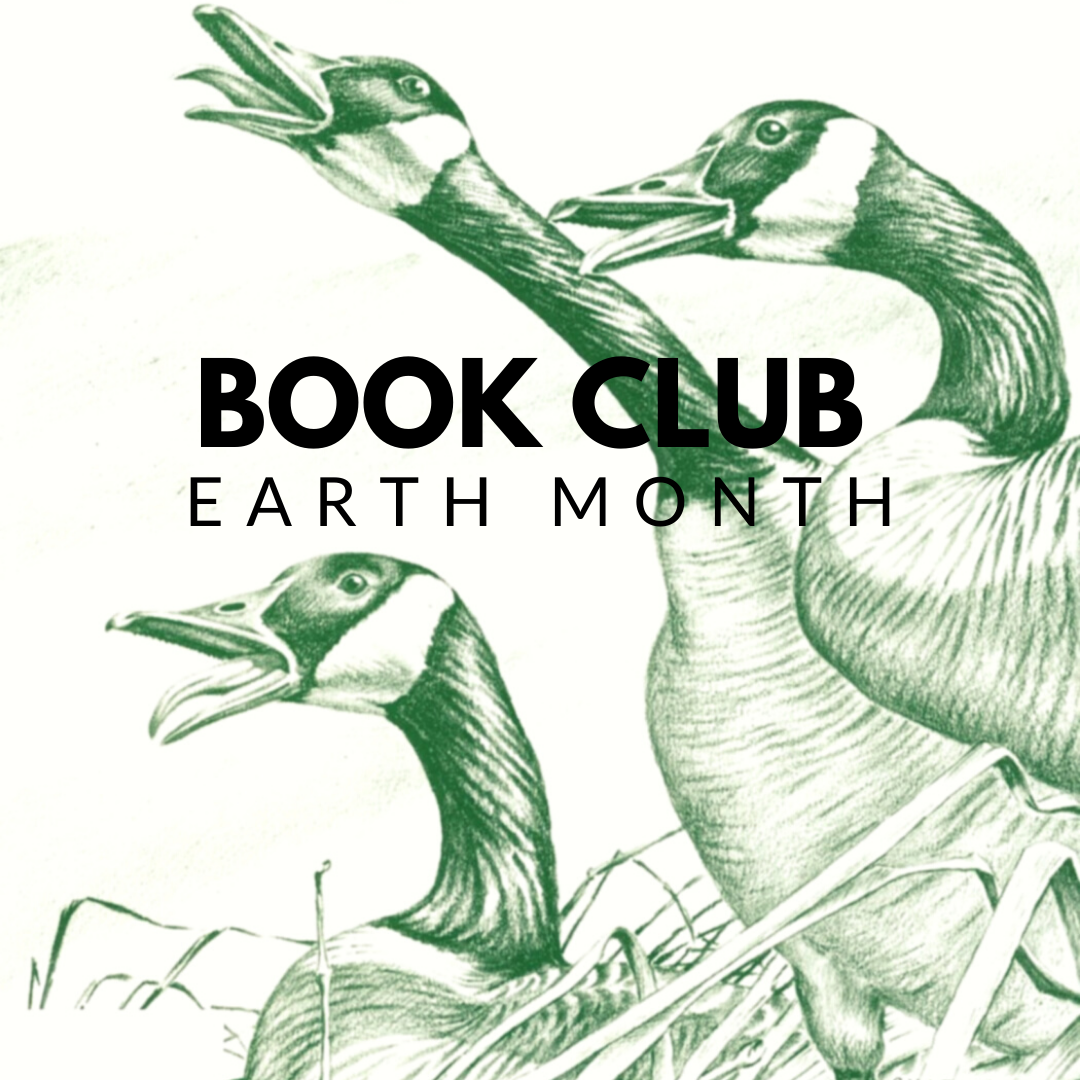
How Does it Work?
We’ll keep it pretty simple! Since libraries are closed, and people’s resources may be stretched thin right now, we will provide a PDF of a publically available essay. The picture on the left may give you a clue to what we’ll be reading… Some background information will be provided here, and in two weeks we will host an online discussion. Some discussion questions will be provided, but we are excited to hear your thoughts on the essay!
Which book?
To celebrate Earth Month we’ll be reading The Land Ethic, by Aldo Leopold. The Land Ethic is actually the last essay in Leopold’s book The Sand County Almanac, a beautiful book of stories from Leopold’s home of Sand County, Wisconsin. In The Land Ethic Leopold pulls together many stories from his life as a naturalist to encourage us to expand our definition of community to include the land. Reading The Land Ethic as individuals and organizations involved in stewardship helps us consider the ways that way we have, and have not, enacted these principals in the 72 years since the book was published.
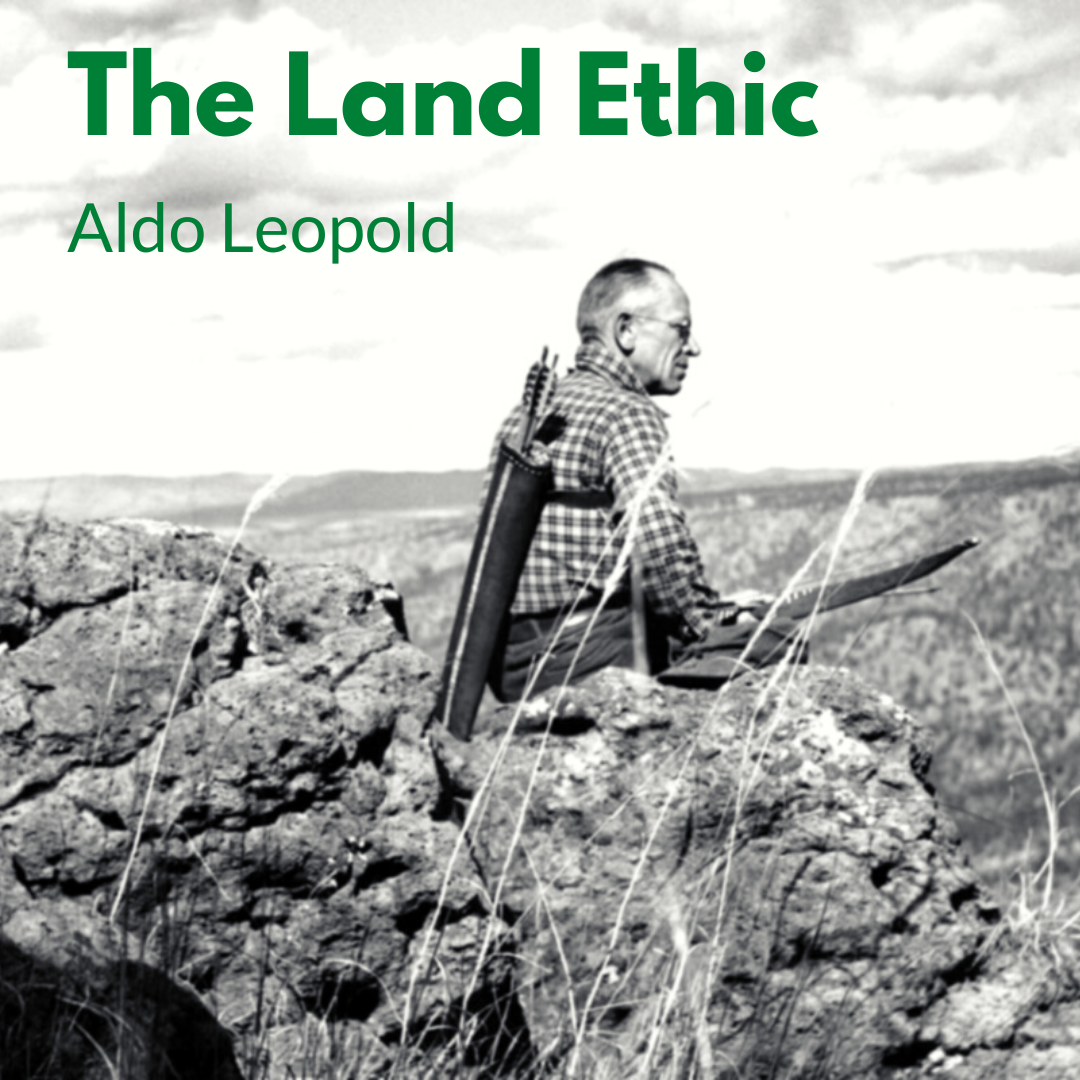
Aldo Who??
Aldo Leopold (1887-1948) was a conservationist, forester, writer, and outdoor enthusiast whose thoughts, experiments, and writings have shaped the field conservation we know today. Leopold’s profesional life started in the US Forest Service, where he made observations on the importance of large predators to ecosystems – and eventually changed Forest Service policy on predator removal. He was a prolific writer whose 500 reports, papers, and essays have influenced public policy, and those in environmental movements.
“In January 1995 I helped carry the first grey wolf into Yellowstone, where they had been eradicated by federal predator control policy only six decades earlier. Looking through the crates into her eyes, I reflected on how Aldo Leopold once took part in that policy, then eloquently challenged it. By illuminating for us how wolves play a critical role in the whole of creation, he expressed the ethic and the laws which would reintroduce them nearly a half-century after his death.”
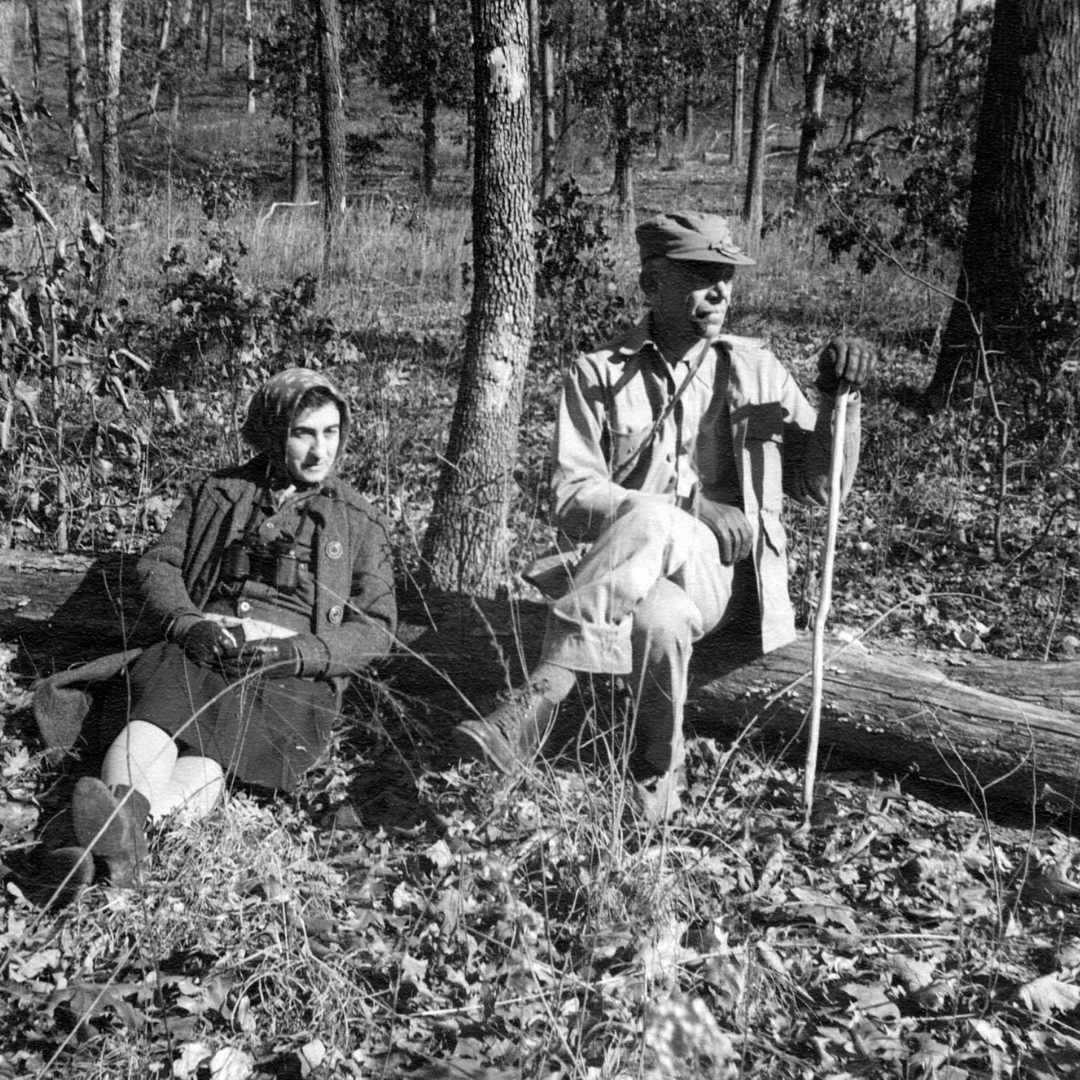
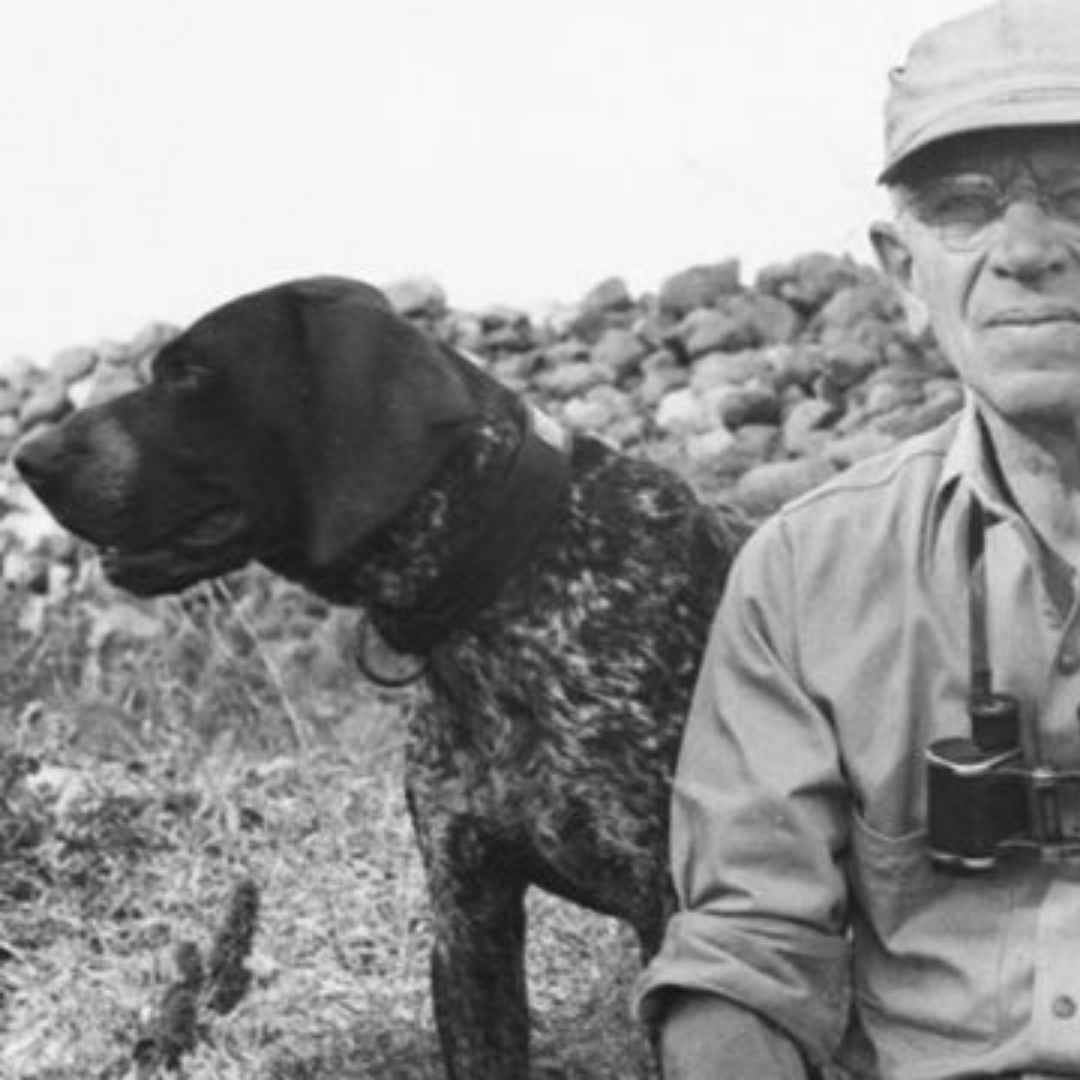
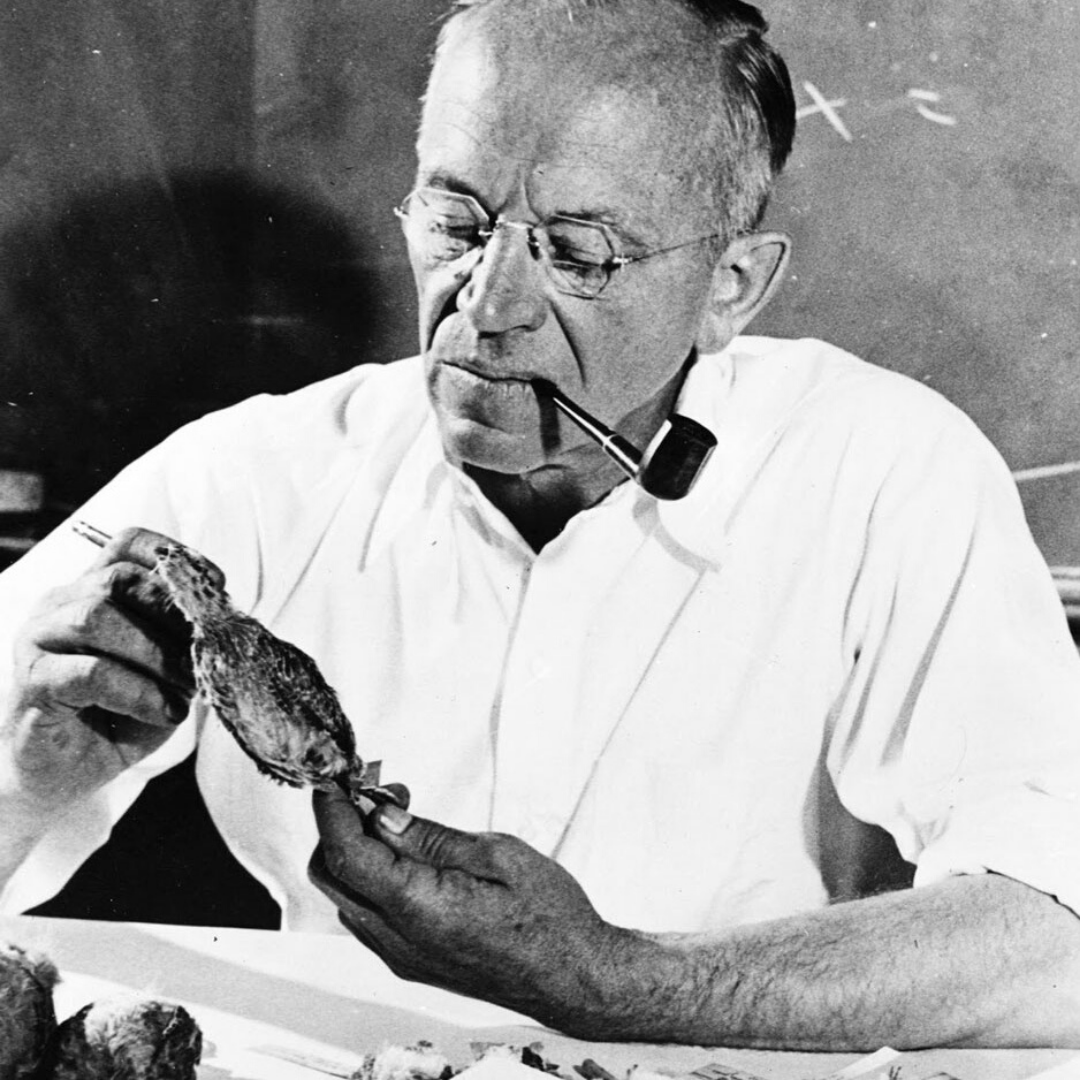
Why Read Leopold Today?
Our understanding of science has changed drastically since A Sand County Almanac was published in 1948 – you may be wondering if there is something more relevant to our current environmental problems we should be reading. Leopold does not address climate change or topics of environmental justice, two central topics in todays environemental discussions. One reason I am excited to read this as a book club is to hear from others how you think Leopold’s work relates to these topics!
This will be my fourth reading of The Land Ethic. My first was in college, when I was living a few hours from Leopold’s farm in Sand County. I read it again in graduate school with a hydrology professor who wanted to teach scientists to write beautifully. When I started working for Forterra – an organization that stewards tens of thousands of acres of land – I read it again. On every reading I get something new from this essay – I am excited to share with, and hear from other land stewards about the pieces of this essay that feel relevant (or not) to you.
Disclaimer
In light of the influence Aldo Leopold had on the conservation movement in the United States, we recognize him and can learn from his writings. We also need to recognize the racist views Aldo Leopold had, which that were rampant in the conservation movement in its beginnings. Because of the purpose of the conservation movement was focused on serving the white citizens of the US, and creating a definition of caring for the land that was distinctly different from Traditional Ecological Knowledge (TEK) held by indigenous peoples, read Aldo’s work with this in mind. Caring for the Earth requires us to heal the broken relationship we have with the land, which is only worsened by racism. Environmental justice, equity, and TEK must be the center of the environmentalism. As we read Aldo and other ‘Fathers’ of conservation’s works, lets see what we can learn and how we can apply it in an equitable, anti-racist way.
What Next?
If I’ve succesfully sold you on participating in this Earth Month Book Club then follow the steps below:
1. Read The Land Ethic. This version includes illustrations but has smaller text. This second version has no illustrations and larger text.
2. On Friday May 1st we will host an informal Zoom discussion about the essay. Email volunteer@forterra.org to get the link and participate!
3. You can also use the comments section to post your own discussion questions and answers! Engage and connect with each other!
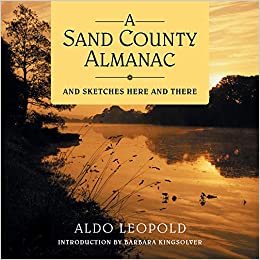
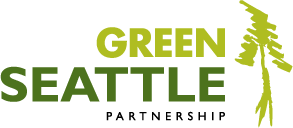
Hi Madeline,
I grew up in WI and studied Environmental Science and Anthropology in South Central MN at Mankato. It was at this time that I grew to know The Sand County Almanac. I’ve been in Seattle for 20 years now and for the last 7 years teaching stewardship, gardening and urban environmental programs. I am so happy you chose this book to start with. Looking forward to participating!
I’m glad you are excited about this essay! If you email me (link to email in bio) I will send you the link to participate in our Zoom discussion!